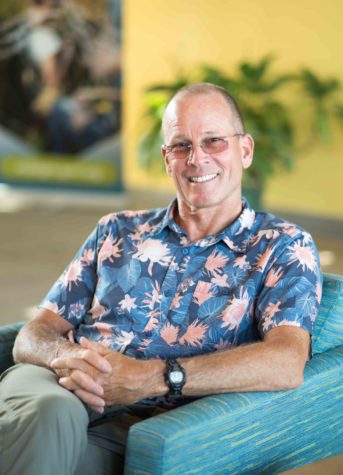
The Future of Fishing
The Gulf of Maine Research Institute educates students while protecting the state’s fisheries
Behind the rows of tall glass windows looking out at Portland’s waterfront, the Gulf of Maine Research Institute (GMRI) is doing more than just research within its wet and analytical labs. The organization is fostering a love of marine science in children while also working to protect the future of the fishing industry.
GMRI’s digital learning lab, LabVenture, opened 13 years ago, and since then it has served 125,000 students from every part of the state. “Our aspiration is to provide kids, no matter where they woke up in the morning, with access to world-class, hands-on science in the middle of a working research lab,” says Don Perkins, president and CEO of the organization. In 2015 GMRI received a $6.5 million grant from NASA to renovate the space and expand its offerings. The renovation, set to be completed in September, will bring updated technology into the lab and provide more hands-on learning opportunities for students, including large touchscreen workstations.
As students work on “emerging marine stewardship challenges,” such as how to make fisheries more sustainable, Perkins says the goal is to show them what they’re each capable of and to keep them interested in science. “In the act of doing real science, they realize that this is something they can do,” he says. “This is a career option for them.” At the same time, GMRI is working to make sure the marine and fishing industries will still be viable when these kids grow up.
Researchers at GMRI are tracking global climate change information and using it to understand the impact that may be felt in the Gulf of Maine. As Maine works through the challenges of climate change, Perkins says GMRI is learning how to “diversify our economic opportunities in coastal communities.” The organization is helping fishermen use aquaculture to cultivate oysters, scallops, kelp, and salmon.
Adapting to change is difficult, Perkins says, but it’s what fishermen are good at. “Fishing is highly cyclical, so fishermen need that flexibility to find what’s in abundance,” he says. “Historically they’ve been very diversified.” Being open to new methods is important economically for the fishing industry, as well as ecologically for the various species, Perkins says. Being prepared for change not only helps fisheries today, but it ensures the industry will be strong when the children at GMRI’s lab potentially enter the field as adults.
